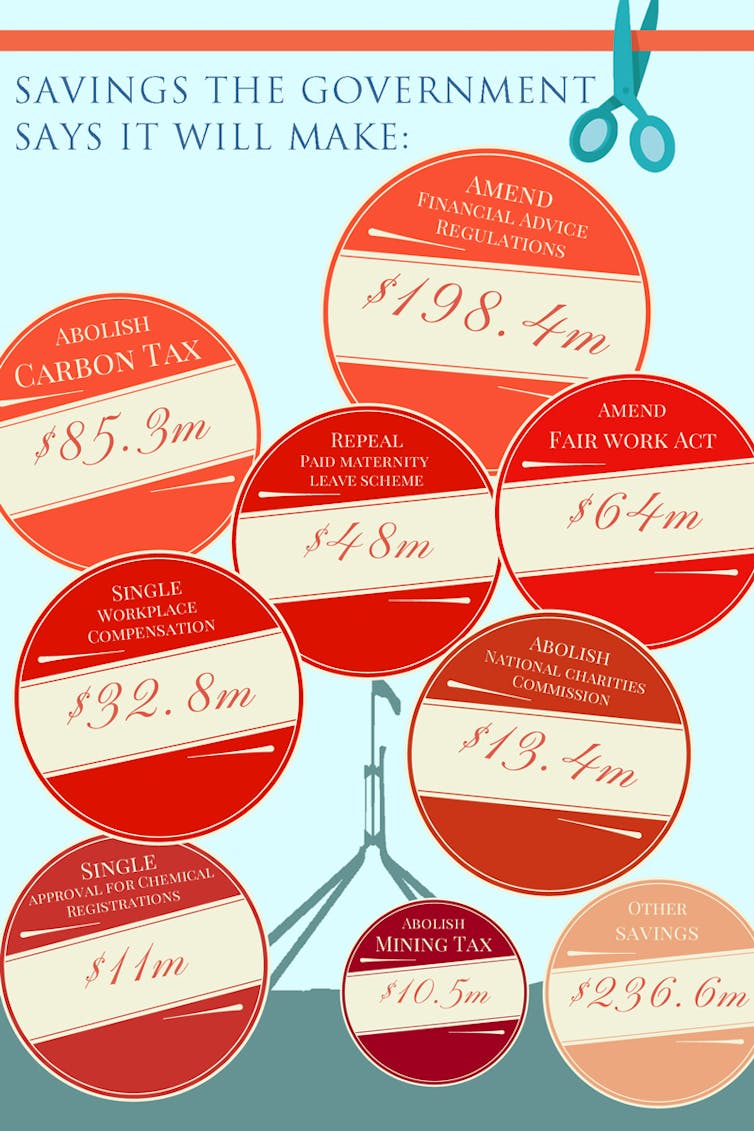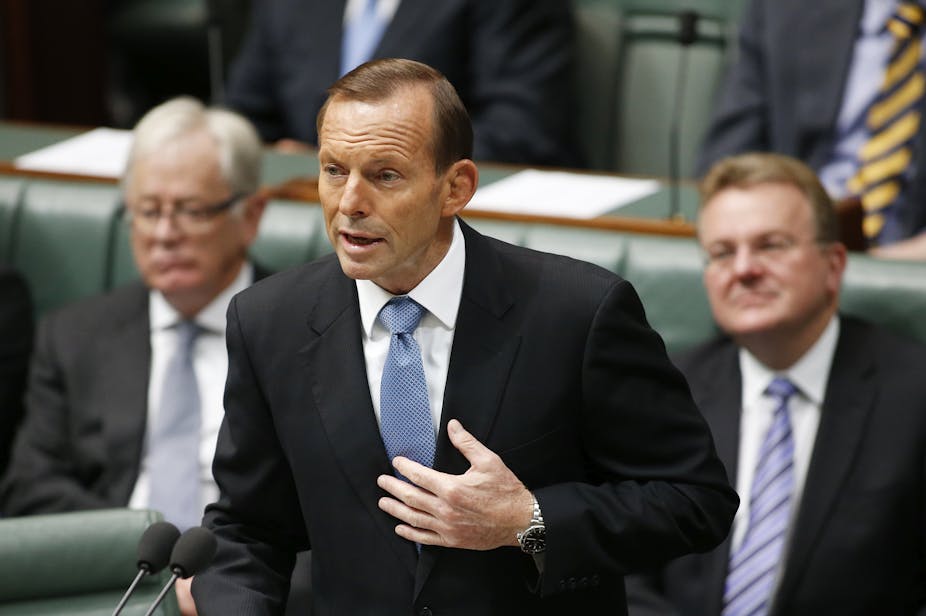Prime minister Tony Abbott said his government would create “the biggest bonfire of regulations in our country’s history” as it moved to cut A$700 million from business compliance costs.
Abbott was outlining the regulations that would be targeted in the first of two annual “red tape repeal days” scheduled for next Wednesday.
He said there were nearly 10,000 unnecessary or counter-productive regulations that needed to go.
“More than 50,000 pages will disappear from the statute books,” Abbott told parliament.
The most significant savings had previously been announced and have little prospect of passing the current Senate.
“Repealing the carbon tax removes over 1,000 pages of primary and subordinate legislation and removes compliance costs from over 75,000 businesses,” Abbott said.
The $700 million figure, quoted on the government’s Cutting Red Tape website launched by the government on Monday, included $85.3 million in savings from the repeal of the carbon tax, $10.5 million from the repeal of the mining tax, and $64 million in savings from changes to the Fair Work act.
Last year the Coalition promised to reduce business compliance costs by $1 billion per year if elected.
“Between 2007 and 2013, under the former government, some 21,000 new regulations found their way into national life,” Abbott said.
But opposition leader Bill Shorten said the previous government had removed 12,000 redundant pieces of legislation and established a minister for deregulation.
Labor is concerned the proposals go too far. “We will not allow important protections to be recklessly cut,” Shorten said.
Allan Asher, a former Commonwealth Ombudsman and now regulation academic at ANU, said most governments since Paul Keating have had “a general deregulatory tilt” and Australia had a “much leaner” approach than many other countries.
“The current concentration on deregulation has a lot to do with positioning and a desire to appeal to a constituency,” he said.
“Business confidence is in part a function of the government’s friendliness toward business and their regulatory agenda is a reasonably powerful indicator of that.”
He was sceptical about the government’s target for $1 billion in year-on-year savings, warning they could lead to reckless or unprincipled actions.
New cost-reduction measures include abolishing the Australian Charities and Not-for-profits Commission, saving $13.4 million, and one-off approvals for agricultural chemicals and veterinary medicines, saving $11 million.

The government will also remove duplications with film classification rules, decrease reporting requirements for universities, remove the need for aged-care facilities to be certified at a federal level, and extend one-stop environmental approvals to offshore petroleum projects.
Christine Parker, professor of regulatory studies at Monash University, said removing unnecessary regulation was “a good idea in general”.
But Professor Parker questioned the worth of removing some redundant regulations like the Metric Conversion Act, which was enacted to facilitate the conversion of measurements in the 1970s.
“I’m not sure it’s really worth the while to have someone spend a week finding the regulations and doing the work to have it repealed,” she said.
The largest single saving comes from widely criticised changes to Future of Financial Advice regulations, which are expected to save $191.3 million if passed.
Allan Asher said independent cost-benefit scrutiny of changes to the financial advice rules had not taken place, and the figures, outlined in a regulatory impact statement prepared by the Office of Best Practice Regulation, were “a doubtful basis for major public policy”.
“We just see what the savings are with the withdrawal of these regulations, but not the benefits,” he said.
“Another collapse like Storm Financial could easily spiral out of hand.”
“The light-handed approach to financial regulations taken by the UK, for instance, has seen losses in the billions. These are government-induced financial losses due to lax regulations.”
Professor Parker said businesses were more concerned about the good enforcement of regulation rather than the volume.
“It’s not just what’s on the books, but there may be good regulations that are enforced in an unreasonable way, or poorly written rules that an agency has figured out how to enforce properly,” she said.
“Governments want to talk about themselves as deregulating, but we know from research that the more they talk, the more regulation there actually is.”
“In the past it was the state that provided more services and owned things. As you begin to push private provision, the state has to start regulating in order to create markets and make sure there are fairness in markets.”
The government also included the repeal of Labor’s paid parental scheme, with a compliance cost of $48 million. It intends to replace the scheme with its own.

